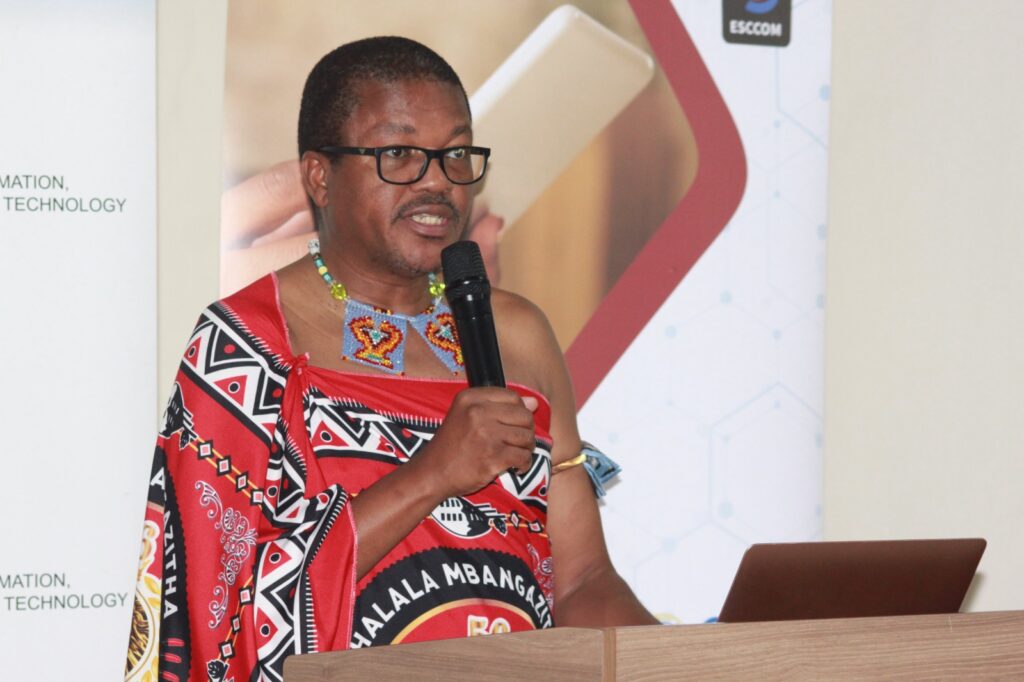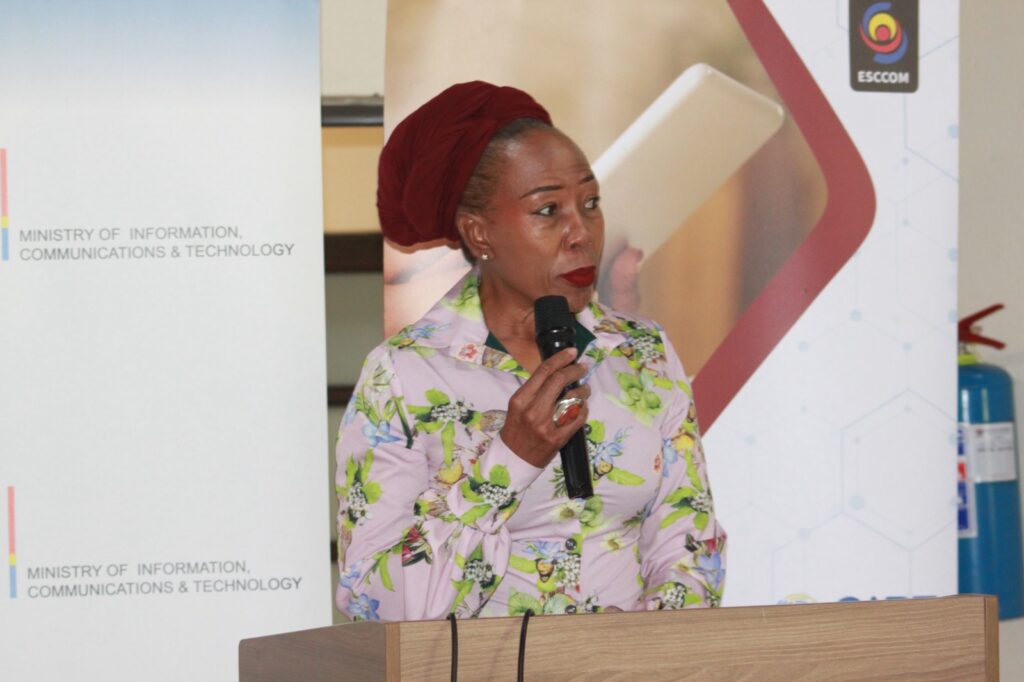
By Sizwe Dlamini
The Eswatini Communications Commission (ESCCOM) Chief Executive (CE), Mvilawemphi Dlamini, has emphasized that the well-being of Eswatini’s economy is closely linked to the global Internet, Therefore, a stable, secure, and open Internet is crucial for fostering economic growth and improving the quality of life for the people of Eswatini.
Dlamini was speaking yesterday at Sibane Sami Hotel during the launch of the Eswatini Internet Governance Forum Draft Agenda under the theme “Building Our Multi-Stakeholder Digital Future.” Dlamini stated that prioritizing the protection of Internet infrastructure is key to improving the lives of EmaSwati.
“The well-being of the Eswatini economy is inexplicably linked to the global Internet, hence a stable, secure, and open Internet is vital for fostering and driving economic growth and improving the quality of life for our people. But for this to happen, we must prioritize protecting the underlying infrastructure that makes the Internet possible. We all have a part to play in this. Governments, businesses, civil society, and the technical community must work together to address the evolving challenges for digital governance and Internet policy,” he said.
Dlamini also noted that a multi-stakeholder approach is essential in addressing various online harms, safeguarding users’ rights, and ensuring that the full potential of the digital world is harnessed for the social and economic benefits of all.
“It is through the collaborative model that we can promote inclusivity and sustainability in the digital economy. As we gather here today, we explore a range of important themes, including harnessing innovation while balancing the risks of the Internet, enhancing the digital contribution to peace, development, and sustainability, advancing human rights and inclusion in the digital age while making the internet a force for good through multi-stakeholder governance,” he noted.
He emphasized the importance of the day’s discussions as they addressed the challenges and opportunities in an increasingly interconnected world. One of the most pressing issues we face, he added, is bridging the digital divide. This divide limits access to essential needs and information and restricts opportunities for businesses, individuals, and nations to thrive in the digital economy.
“To tackle these challenges, we must continue to build on the foundations for diverse and representative governance systems that include voices from governments, businesses, civil society, and the technical community. With these voices, we will be better equipped to address the complexities of the digital landscape and ensure that no one is left behind,” he said.

Dlamini encouraged all forum participants to engage extensively in the discussions, emphasizing that their insights are invaluable in shaping a future where the Internet serves as a tool for innovation and progress while promoting inclusivity, fairness, and respect for human rights.
The Forum brought together a wide range of stakeholders, including government representatives, business leaders, technical experts, community members, and organizations. The Forum’s aim is to build a more collective and conducive digital future for Eswatini.
